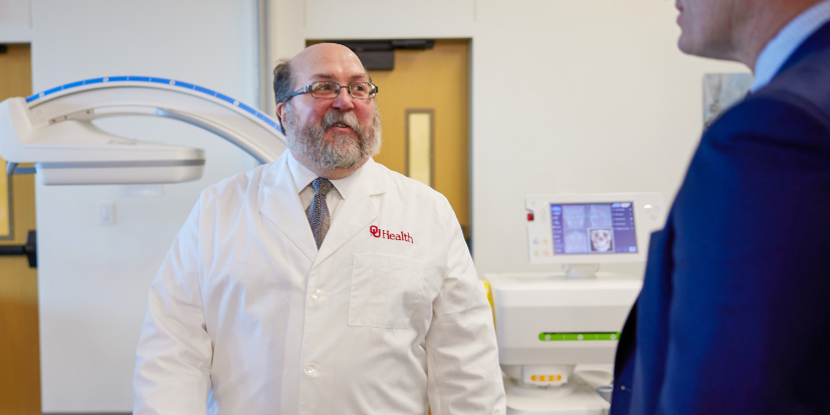Safe Use of Antihistamines in Children
OKLAHOMA CITY — Allergy season is upon us and many consumers will reach for over-the-counter (OTC) products to help ease symptoms of runny noses and watery eyes. Some of these products, however, can cause serious side effects in children.
“Antihistamines are commonly used to treat allergies as well as cough and cold symptoms. In addition to the possible side effects of these medicines, there is a danger of unintentional overdose” said Scott Schaeffer, RPh, DABAT, managing director of the Oklahoma Center for Poison and Drug Information. “Too much medication can be given if a child receives a dose of multi-symptom cold medication along with his or her allergy medicine. If multiple medications are to be given, parents and caregivers should carefully read package labels in order to make sure that ingredients aren’t duplicated.” If you are unsure about ingredients or proper dosing contact your pharmacist or the Poison Center.
Serious side effects, such as seizures, are more likely to occur in younger children and could pose greater risk to infants or young children when compared to older children or adults. In general, children are more sensitive than adults to the side effects of antihistamines. Unusual excitement, nervousness, restlessness, or irritability are symptoms more likely to occur in children.
The Food and Drug Administration advises that no OTC antihistamines or cold medicine should be given to a child under 2 years of age. Talk your child’s physician, your pharmacist, or call the Poison Center with questions about using this type of medicine for children 2 years of age or older.
To ensure an accurate dose is given, only use measuring cups or devices that come with the medicine or those made specifically for measuring medicine. Do not use common household spoons to give a dose since household spoons come in different sizes and are not meant for measuring medicine.
Pharmacists and registered nurses at the poison center are available 24 hours a day, seven days a week. Call the Poison Help-line at (800) 222-1222. Do not e-mail the poison center or a member of the poison center staff, as poisoning emergencies are not handled through e-mail. The Oklahoma Center for Poison and Drug Information is a program of the University of Oklahoma College of Pharmacy at the OU Health Sciences Center. For more information, please visit www.oklahomapoison.org.
###
OU COLLEGE OF PHARMACY
The University of Oklahoma College offers the Doctor of Pharmacy professional degree program and graduate programs in the Pharmaceutical Sciences leading to the Master of Science and Doctor of Philosophy degrees. Since 1896, the College of Pharmacy has had more than 5,300 graduates.
OU MEDICINE
OU Health — along with its academic partner, the University of Oklahoma Health Sciences Center — is the state’s only comprehensive academic health system of hospitals, clinics and centers of excellence. With 11,000 employees and more than 1,300 physicians and advanced practice providers, OU Health is home to Oklahoma’s largest physician network with a complete range of specialty care. OU Health serves Oklahoma and the region with the state’s only freestanding children’s hospital, the only National Cancer Institute-Designated Stephenson Cancer Center and Oklahoma’s flagship hospital, which serves as the state’s only Level 1 trauma center. OU Health is the No. 1 ranked hospital system in Oklahoma, and its oncology program at Stephenson Cancer Center and OU Medical Center ranked in the Top 50 in the nation, in the 2019-2020 rankings released by U.S. News & World Report. OU Health was also ranked by U.S. News & World Report as high performing in four specialties: Ophthalmology in partnership with Dean McGee Eye Institute, Colon Surgery, COPD and Congestive Heart Failure. OU Health’s mission is to lead healthcare in patient care, education and research. To learn more, visit oumedicine.com.



